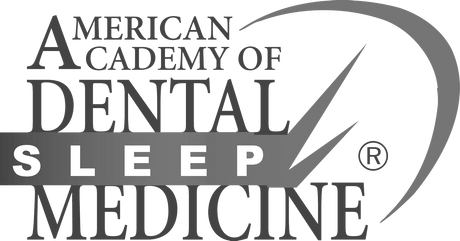How Dr. Fay Helps You Sleep Better by Treating Sleep Apnea

Sleep apnea is a common sleep disorder that can have serious effects on your health if left untreated. It occurs when your breathing repeatedly stops and starts during sleep, causing disruptions that prevent you from getting restful sleep. Dr. James Fay at Paget Dental is dedicated to helping patients diagnose and treat sleep apnea so they can sleep better and improve their overall well-being.
Many people with sleep apnea may not even realize they have it. Common symptoms include loud snoring, gasping for air during sleep, daytime fatigue, and difficulty concentrating. These symptoms not only affect your sleep quality but can also lead to more serious health issues like high blood pressure, heart disease, and diabetes.
Understanding the causes and symptoms of sleep apnea is the first step toward effective treatment. Dr. Fay uses advanced diagnostic tools to accurately identify sleep apnea and create a personalized treatment plan for each patient. Whether you’re experiencing mild or severe symptoms, Dr. Fay’s expertise can guide you to better sleep and improved health. Let's explore how sleep apnea affects you and how Dr. Fay can help you find relief.
Understanding Sleep Apnea: Causes and Symptoms
Sleep apnea is a condition where your breathing stops and starts repeatedly while you sleep. This interruption can last from a few seconds to a few minutes and may happen multiple times throughout the night. There are a few main types of sleep apnea, including obstructive sleep apnea (OSA), central sleep apnea, and complex sleep apnea syndrome.
Causes of Sleep Apnea:
1. Obstructive Sleep Apnea (OSA):
This is the most common type and happens when the muscles in the throat relax too much. This relaxation can cause the airway to narrow or close, making it hard to breathe.
2. Central Sleep Apnea: This type occurs when the brain doesn't send the proper signals to the muscles that control breathing.
3. Complex Sleep Apnea Syndrome: Also known as treatment-emergent central sleep apnea, this condition is a combination of OSA and central sleep apnea.
Symptoms of Sleep Apnea:
Loud Snoring: This is one of the most noticeable signs.
Gasping for Air: You might wake up choking or gasping.
Daytime Fatigue: Despite getting a full night's sleep, you may feel very tired during the day.
Headaches: Morning headaches are common.
Difficulty Concentrating: Feeling foggy or having trouble staying focused.
These symptoms not only disrupt your sleep but also can affect your daily life. Recognizing these signs is the first step to getting the help you need.
How Sleep Apnea Affects Your Health
If left untreated, sleep apnea can have serious health consequences. The repeated pauses in breathing can lead to a range of issues that impact your overall well-being.
1. Cardiovascular Problems:
Sleep apnea can increase the risk of high blood pressure, heart disease, and stroke. The sudden drops in blood oxygen levels that happen during episodes of sleep apnea can strain the cardiovascular system.
2. Diabetes: There's a strong link between sleep apnea and type 2 diabetes. The disturbances in sleep can affect insulin sensitivity, making it harder to regulate blood sugar levels.
3. Weight Gain: Sleep apnea can lead to weight gain due to hormonal imbalances caused by poor sleep. In turn, being overweight can worsen sleep apnea, creating a vicious cycle.
4. Mental Health: Lack of restful sleep affects your mood and mental health. People with sleep apnea are more likely to experience depression, anxiety, and irritability.
5. Daytime Fatigue: Constant fatigue can affect your quality of life, making it difficult to concentrate, work, and enjoy daily activities.
Treating sleep apnea can help reduce these risks and improve your health. By addressing sleep apnea, you can protect your heart, manage your weight better, and improve your mental and physical well-being. Recognizing the health impacts highlights the importance of seeking effective treatment.
Dr. Fay’s Approach to Diagnosing Sleep Apnea
Dr. Fay takes a thorough and patient-focused approach to diagnosing sleep apnea. The process begins with a detailed conversation about your symptoms, medical history, and any concerns you may have. It’s important to share symptoms like snoring, daytime fatigue, headaches, or difficulty concentrating, as these can be key indicators of sleep apnea.
Next, Dr. Fay may recommend a sleep study to get a clear picture of your sleep patterns and breathing irregularities. This study can be done at a sleep center or sometimes even at home. The sleep study monitors your heart rate, breathing, and oxygen levels while you sleep.
After the sleep study, Dr. Fay will review the results with you to diagnose the severity and type of sleep apnea. This helps in creating a personalized treatment plan tailored to your needs. Dr. Fay’s goal is to ensure you fully understand your condition and the steps required for effective treatment. With a clear diagnosis, you can move forward with confidence, knowing that you’re on the path to better sleep and improved health.
Effective Treatments for Sleep Apnea at Paget Dental
Treating sleep apnea effectively requires a personalized approach, and Dr. Fay offers several treatment options at Paget Dental. The right treatment depends on the severity of your sleep apnea and your specific needs.
1. Oral Appliances: For mild to moderate sleep apnea, Dr. Fay may recommend an oral appliance. These custom-made devices fit comfortably in your mouth and help keep your airway open by repositioning your jaw or tongue while you sleep.
2. Continuous Positive Airway Pressure (CPAP): For more severe cases, a CPAP machine may be suggested. This machine delivers constant air pressure through a mask, keeping your airway open throughout the night.
3. Lifestyle Changes: Sometimes, simple changes like losing weight, quitting smoking, or changing your sleep position can significantly improve sleep apnea symptoms. Dr. Fay can guide you in making these changes effectively.
4. Surgery: In rare cases, surgery might be necessary to remove tissue or correct physical issues causing the airway obstruction.
Dr. Fay will work with you to choose the best course of action. The aim is to reduce symptoms, improve sleep quality, and enhance your overall health. Regular follow-ups ensure that your treatment is effective and can be adjusted if needed.
Conclusion
Sleep apnea is more than just a nighttime nuisance; it's a serious condition that can affect your overall health and quality of life. With the right diagnosis and treatment from Dr. Fay at Paget Dental, you can find relief and get back to restful, restorative sleep. Addressing sleep apnea not only improves your sleep but also reduces the risks associated with cardiovascular problems, diabetes, and mental health issues.
Taking the first step toward better sleep and health is easy. Simply reach out to Paget Dental and schedule a consultation with Dr. Fay. We are here to help you understand your condition and provide personalized, effective
sleep apnea treatment that works for you. Don’t let sleep apnea control your life any longer; contact Paget Dental today and start your journey to a healthier, happier you.






OFFICE HOURS
Monday to Thursday:
8:30am - 5:00pm
Friday:
8:30am - 12:00pm
Saturday & Sunday:
Closed
CONTACT INFO
All Rights Reserved | Paget Dental Group
Designed By: Morningdove - Accessibility Statement







